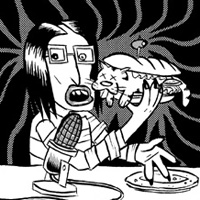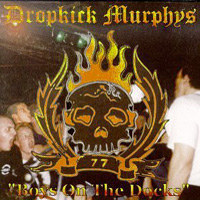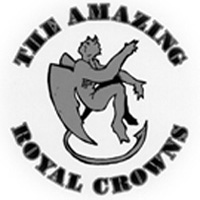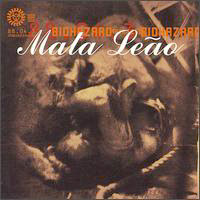 Biohazard
Biohazard
Mata Leao (Warner Bros.)
An interview with Danny Schuler and Rob Echeverria
by Rebekah Sue Harris
Biohazard‘s back on the road, supporting their new album, Mata Leao (Mah’ tah Lay oh’). It means “whatever you want it to mean,” according to Danny. Mata Leao is the first album that Biohazard has made as a three-piece (Evan, Billy, and Danny; Rob “Das” Echeverria, formerly of Helmet, didn’t join the band until after Mata Leao‘s completion). They feel that it’s probably the most focused and unified album Biohazard’s ever made. Every album for them is a progression; as years go by, they’re growing.
But growing has a price. Bobby Hambel is no longer with Biohazard due to “musical differences, personality differences,” and so on. Evan, Billy, Bobby, and Danny never expected such a thing while growing up together, even as they watched other bands go through changes in lineup, not one of them ever dreamed Biohazard wouldn’t always have its original four members. There is no doubt that Bobby contributed artistically to the band for many years, and the remaining members and Rob will continue to play material in which Bobby collaborated (for example, the lyrics to “Five Blocks to the Subway” are based on a poem by Bobby’s father). While the remaining members of Biohazard aren’t currently on friendly terms with Bobby, they wish him well, and are pleased with the success of his new band, White Devil (consisting of Bobby and former Cro-Mags). “We just don’t relate on a human basis any more,” Danny said, but he has nothing but praise for White Devil.
 For some reason, the band is often under attack, accused of Nazism. I would say “vulnerable to attack from critics,” but Biohazard is far from vulnerable. Danny says that the attacks began many years ago, because of a tongue-in-cheek line in a song entitled “America” on their first demo. Its last line questions the U.S. government bullshit, comparing it to “American Nazi Pride.” Unfortunately they found out the hard way that, “When you’re seventeen and you make a demo that’s got a fucking joke in it, you’ve got to answer for it until you’re ninety-nine.” More controversy surrounded the song “Howard Beach” (which appears on their eponymous Maze album). “Howard Beach” is a fucking documentary about a racially-based fight in the New York town of Howard Beach. Horrible events happen in every town every day, and they wrote about this event because it hit close to home – literally, since they grew up not far from the middle-class town. People in their neighborhood were directly affected by the events, so they wrote about the event. That’s it. While some become infuriated when people accuse Biohazard of being a Nazi band, Danny and Rob just laugh it off – especially because Danny and Evan are Jewish. Biohazard isn’t about forcing people to change; hell, they invite critics to come to a show so they can become informed and make their own decisions based on rational information. What bothers them the most is that the attackers are uninformed. Those who attack haven’t even listened to the lyrics, so they don’t know what the band is saying.
For some reason, the band is often under attack, accused of Nazism. I would say “vulnerable to attack from critics,” but Biohazard is far from vulnerable. Danny says that the attacks began many years ago, because of a tongue-in-cheek line in a song entitled “America” on their first demo. Its last line questions the U.S. government bullshit, comparing it to “American Nazi Pride.” Unfortunately they found out the hard way that, “When you’re seventeen and you make a demo that’s got a fucking joke in it, you’ve got to answer for it until you’re ninety-nine.” More controversy surrounded the song “Howard Beach” (which appears on their eponymous Maze album). “Howard Beach” is a fucking documentary about a racially-based fight in the New York town of Howard Beach. Horrible events happen in every town every day, and they wrote about this event because it hit close to home – literally, since they grew up not far from the middle-class town. People in their neighborhood were directly affected by the events, so they wrote about the event. That’s it. While some become infuriated when people accuse Biohazard of being a Nazi band, Danny and Rob just laugh it off – especially because Danny and Evan are Jewish. Biohazard isn’t about forcing people to change; hell, they invite critics to come to a show so they can become informed and make their own decisions based on rational information. What bothers them the most is that the attackers are uninformed. Those who attack haven’t even listened to the lyrics, so they don’t know what the band is saying.
As far as drinking and drugs go, the band is known to indulge, but they don’t overindulge. And they don’t preach. They’d rather plant a seed, perhaps to make someone stay straight, perhaps to make listeners become more introspective. Danny commented on kids who are so hardcore anti-Fascist that they’re actually Fascists. “How right is that?”
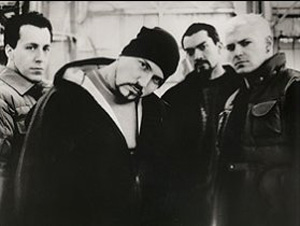 It’s said over and over that Biohazard is a fan-oriented band; they have a wonderful, organized fan club started by a mother/daughter team in New York. (For more information, write to DFL, 88 Brewster Street, Staten Island, NY 10304.) Many of the fans reciprocate by getting Biohazard tattoos. One of the early shows of the Mata Leao tour was for the Make A Wish Foundation, but they did it for the kids rather than for the Foundation. When they get involved with worthy causes, it has more to do with individuals who need help and support than with the cause.
It’s said over and over that Biohazard is a fan-oriented band; they have a wonderful, organized fan club started by a mother/daughter team in New York. (For more information, write to DFL, 88 Brewster Street, Staten Island, NY 10304.) Many of the fans reciprocate by getting Biohazard tattoos. One of the early shows of the Mata Leao tour was for the Make A Wish Foundation, but they did it for the kids rather than for the Foundation. When they get involved with worthy causes, it has more to do with individuals who need help and support than with the cause.
Biohazard continues to progress with their music. There is no “award” that they want to win, no pinnacle to reach (though Danny jokes that Rob will have reached his goal when he is “sitting in the Blue Note every night, playing jazz”). As artists, they’re constantly creating something out of nothing; their work will “never be done.” They gauge their success by their shows, not by sales or industry standards.
Danny closed the interview by saying, “We just try to be good people and just drift along and have a healthy life and have fun… and occupy our time by doing positive shit, you know, instead of destroying ourselves and others in the process.”

